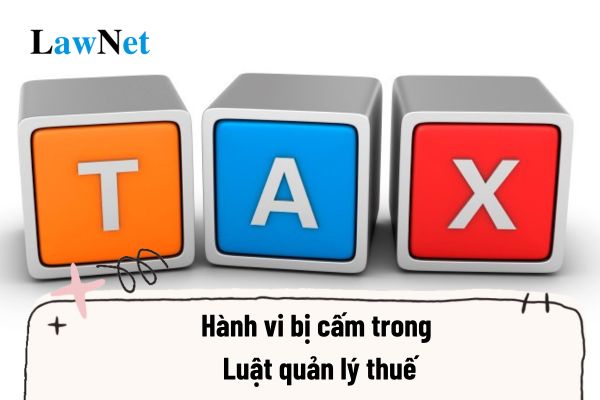Is inadequate declaration of tax liabilities a prohibited act under the Law on Tax Administration of Vietnam?
Is inadequate declaration of tax liabilities a prohibited act under the Law on Tax Administration of Vietnam?
Pursuant to Article 6 of the Law on Tax Administration 2019 regarding the acts prohibited in tax administration as follows:
Prohibited Acts in Tax Administration
1. Collusion, conspiracy, or cover-up between taxpayers and tax administration officials or tax authorities to transfer pricing or commit tax evasion.
2. Harassment or causing inconvenience to taxpayers.
3. Exploiting to misappropriate or unlawfully use tax money.
4. Intentionally failing to declare or underreport taxes, or not declaring fully, promptly, and accurately the tax payable.
5. Obstructing tax administration officials in performing their duties.
6. Using another taxpayer's tax identification number to perform illegal acts or allowing others to use one's own tax identification number in an unlawful manner.
7. Selling goods, providing services without issuing invoices as prescribed by law, using illegal invoices and using invoices unlawfully.
8. Distorting, misusing, unauthorized access, or destroying taxpayer information systems.
Thus, according to the regulation, the intentional act of underreporting the tax payable is a prohibited act according to the law.

Is inadequate declaration of tax liabilities a prohibited act under the Law on Tax Administration of Vietnam? (Image source: Internet)
When shall separate elements relevant to determination of tax payable be imposed in Vietnam?
Pursuant to Article 50 of the Law on Tax Administration 2019 stipulations:
Tax determination for taxpayers in cases of tax law violations
...
3. Taxpayers are subject to determination of each separate element related to the determination of tax payable in one of the following cases:
a) Upon checking tax declaration dossiers, the tax authority has grounds to believe that the taxpayer has not fully or accurately declared separate elements forming the basis for determining the tax payable, has requested the taxpayer to make additional declarations but the taxpayer fails to supplement as required by the tax authority;
b) Upon checking accounting books, invoices, documents related to the determination of the tax payable, the tax authority has grounds to prove that the taxpayer's accounting is inaccurate or dishonest with respect to separate elements related to the tax amount to be assessed;
c) Accounting the sales prices of goods/services not in accordance with the actual transaction prices, reducing taxable revenue, or accounting the purchase prices of goods, raw materials for production or business not according to actual transaction prices in conformity with the market, increasing costs, increasing deductible value-added tax, reducing tax obligations to be paid;
d) Taxpayers file tax declarations but fail to declare separate elements forming the basis for determining the taxable base or determine such separate elements but are unable to self-calculate the tax payable.
...
Thus, taxpayers will be subject to the determination of each separate element related to the determination of tax payable in the following four specific cases:
- Upon checking tax declaration dossiers, the tax authority has grounds to believe that the taxpayer has not fully or accurately declared separate elements forming the basis for determining the tax payable, has requested the taxpayer to make additional declarations but the taxpayer fails to supplement as required by the tax authority;
- Upon checking accounting books, invoices, documents related to the determination of the tax payable, the tax authority has grounds to prove that the taxpayer's accounting is inaccurate or dishonest with respect to separate elements related to the tax amount to be assessed;
- Accounting the sales prices of goods/services not in accordance with the actual transaction prices, reducing taxable revenue, or accounting the purchase prices of goods, raw materials for production or business not according to actual transaction prices in conformity with the market, increasing costs, increasing deductible value-added tax, reducing tax obligations to be paid;
- Taxpayers file tax declarations but fail to declare separate elements forming the basis for determining the taxable base or determine such separate elements but are unable to self-calculate the tax payable.
What is the time limit for imposition of administrative penalties for inadequate declaration of tax liabilities leading to tax underpayments in Vietnam?
According to Article 137 of the Law on Tax Administration 2019 regarding the time limit for imposition of administrative penalties in tax administration as follows:
Time limits for imposition of administrative penalties in tax administration
1. For violations of tax procedures, the time limits for imposition of penalties is 2 years from the date of the violation.
2. For tax evasion not reaching the criminal prosecution level, inadequate declaration of tax liabilities leading to tax underpayments or increased exempted/reduced/refunded/non-collected tax, the time limits for imposition of penalties is 5 years from the date of the violation.
3. After the expiry of the time limits for imposition of administrative penalties in tax administration, the taxpayer will not be penalized but must still pay the full amount of tax deficiency, tax evasion, wrongly exempted, reduced, refunded, non-collected taxes, and late payment interest into the state budget within a period of 10 years retroactively from the date of detecting the violation. In cases where the taxpayer has not registered for a tax code, they must fully pay the tax deficiency, tax evasion amount, and late payment interest for the entire period retroactively from the detection date of the violation.
Under Clause 2, Article 137 of the Law on Tax Administration 2019, the time limit for imposition of penalties is 5 years from the date of the violation for the following two cases:
- Tax evasion not reaching the level of criminal prosecution;
- inadequate declaration of tax liabilities leading to tax underpayments or increasing the amount of tax exempted, reduced, refunded, or non-collected.
Thus, the time limit for imposition of administrative penalties for inadequate declaration of tax liabilities leading to tax underpayments is 5 years from the date of the violation.


- Shall the TIN of dependant be changed to a personal TIN in Vietnam?
- Shall an employee with a contract of less than 6 months be subject to enforcement by deduction of money from the taxpayer’ salary or income in Vietnam?
- How long is the tax enforcement decision effective in Vietnam?
- What is the deadline for submitting taxes of the fourth quarter in Vietnam? What types of taxes are declared quarterly in Vietnam?
- Do Lunar New Year gifts valued at 2 million for employees subject to personal income tax in Vietnam?
- What are cases where non-refundable ODA project owners are entitled to refund of VAT in Vietnam?
- What is the form for notification of payment of land and housing registration fee by tax authority in Vietnam according to Decree 126?
- What are 03 conditions for VAT deduction in Vietnam from July 1, 2025?
- Is the e-tax transaction code generated uniformly in Vietnam?
- What crime will be imposed for tax evasion with an amount of from VND 100,000,000 in Vietnam?

